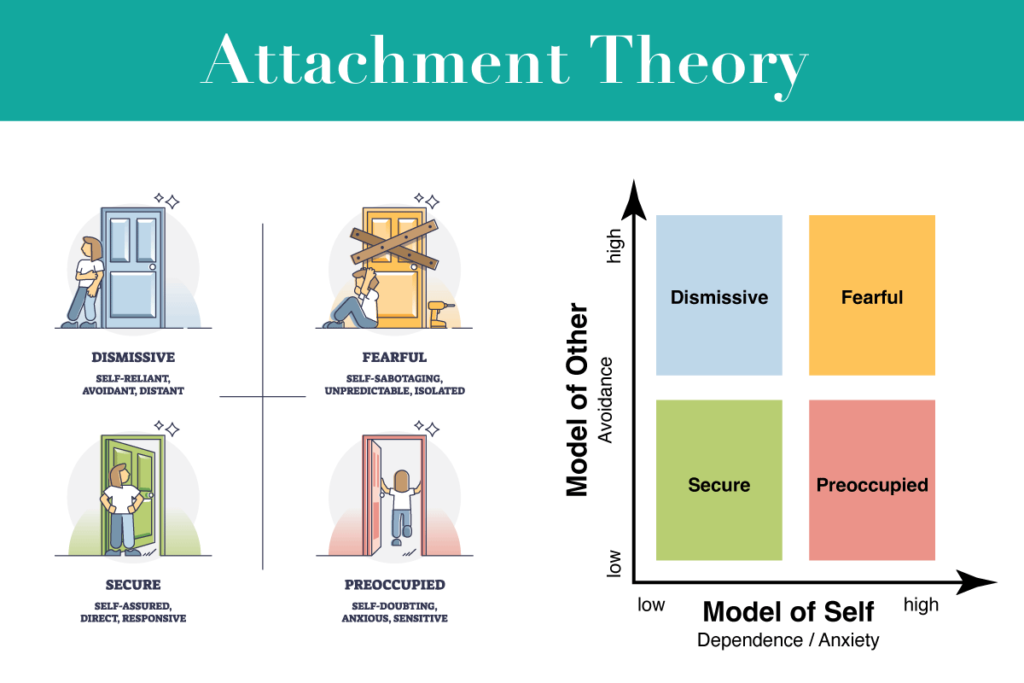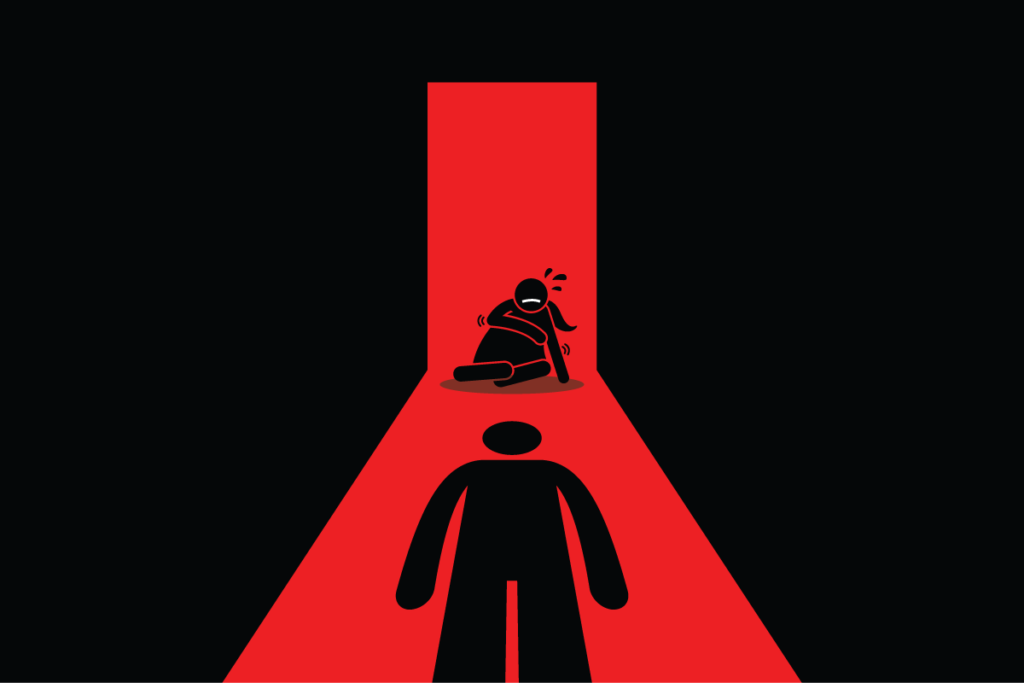Let me restate…
Maybe I should move from Why Do I get attached so easily to -
WHY DO WE GET ATTACHED TO PEOPLE & THINGS?
After all attachments is a bit of the human condition we all deal with on some level, right?Ah… isn’t it interesting being a human?
In all honesty, I’m working on understanding my own attachment issues and just what attachment is myself. I’m doing it for myself, but also to better understand you and all people and hopefully to gain more insight on all of us and humanity at large.
I’m passionate about community building and personal wellness and belonging is part of both of those topics/practices. To understand deeper we could explore where it all starts via attachment theory, attachment styles, or maybe we explore how we most often think of “why I get so easily attached” and some most common thoughts we feel in everyday life.
Maybe I’ll cover several of these ideas quickly to give a basis or foundation. Click the links above and review these mini info-graphics and video below for more clarity of what is attachment.


Although this video is focused on the child, explore how this plays out in adults between partners, friends, coworkers, and general connections in our lives.
There is an old saying…
Keep your friends close, and your enemies closer
Sometimes we get attached to the inner critic and harmful things. It is easy to see how that can be bad for us, right? But then there are other things. Things that we may not realized we are attached to or that they are “bad” or “negative” but can attachment to even these be harmful?
Let’s explore this topic a bit…
What Is Attachment?

Humans are social animals, that much should already be known to all of us.
I mean, even for more introverted folks, it doesn’t take a degree in biology to find out that’s precisely how we became the dominant species on the planet.
If every person starts learning information throughout their life, but can’t write or pass it on, then the next generation starts from ground-zero. But, precisely because we share and socialize, we can accumulate experience from our forefathers.
At some point I decided I was a life-long learner and I wanted to make it one of my traits to always be learning. Then I decided it would be good to share what I am learning and that is partly what this brand is all about – education, lifting people up, sharing wisdom, and evolving.
For better or worse, evolution has made attachment to other people and certain objects, even ideas, a very intrinsic and inevitable part of our existence.
So Why Does Attachment Form?

Differing from other animals like tigers, eagles, sharks, and the like, humans hunt in packs.
One naked ape (human) can’t wear down an antelope or a bison, but several of us, coordinating attacks and outlasting a fast animal is what led us here today, literally.
This same reliance on tools was slowly but surely coded into our minds over thousands of years, into something more removed but still essentially the same underlying principle.
Can Attachment Be Beneficial?

Of course, that’s why it is so deeply embedded into our psyche.
Shared experiences, whether they be fun adventures, or going through sad and tough times, facilitate trust between people. I’m a firm believer that community and connections to others is a truly important part of the human experience and happiness.
Those connections and experiences, in turn, forge stronger connections, friendships, relationships and even develops us as a person, outside of any external factors.
Notice that people who have many secure and tested friendships have this sort of “cool” aura around them.
Confident in their own abilities, but also the fact that if they need help or some other expertise, they have reliable people to go to.
Identifying Unhealthy Attachments

At the same time, just because you’ve known someone for a very long time or gone through hell together doesn’t mean they are either a good influence on you or that they will stay that way.
Our culture places a twisted sense of “honor” and “loyalty” on not detaching from people who are passively or even actively holding you back with outdated ideas, general pessimism, or even jealousy.
Sometimes these people may even be family, but there comes the point where strengthening bonds become parasitic tumors.
How To Manage Attachments
As great as having friends and even lovers to rely on, everyone needs to be able to support themselves enough on their own. At least this is what our individualistic society tells us.
It might sound a bit cold, even sociopathic, to people high in agreeableness, but that really isn’t the case at all.
Being strong and confident even when you’re alone just means you can be there for your close ones when they need help or support without compromising your own stability in the process.
I will say we need to understand this or think about this idea in a healthy way. For example building self-care and self-compassion for yourself are powerful tools that can help to fill your cup so to speak.
Another good tip to identify healthy relationships is people who will hear you out, be patient, and empathetic when you’re sad, and won’t immediately tell you how something even worse happened to them recently.
God knows I sometimes drop the ball here. Not as a competition between struggles but sometimes to share how I moved past it. Not always the most supportive no matter the intent.
The same rule works in reverse for friends who will celebrate your victories with you and not start gloating over their own recent successes.
Attachments and Suffering

It’s interesting, over the last 3 years or so attachment has changed in my mind and understanding. You see one new connection I’ve realized was how attachment can lead to suffering if we are not cautious.
From my exploration I say suffering in life is caused by our attachment to our “unrealistic” expectations. So for example if I expect that my kids will treat our furniture with respect I might be headed to a path of suffering if I cling to that idea.
As I write this article, I sit in a chair that my youngest thought would be great to practice his writing and art skills with some markers. My expectations were different and seeing the scribbles could very easily cause some serious suffering and anger, right.
How attached am I too this expectation I had of my kid coloring on paper and NOT furniture.
How often does this play out in our lives where our expectations are not meeting reality? How passionately do we cling to our expectations? How attached are we to them?
This is attachment and I hope you are able to see how this form of attachment could be harmful for our wellbeing.
Awareness and Letting Go
With the last examples of how attachment can lead to suffering it gives us an opportunity that I think is really important in so many ways in life – awareness.
Being aware of what attachment is and how it plays out in our lives is the first step to changing negative attachments. Being able to name our feeling, emotions and actions can be a game-changer.
You see, once we can name it… we can evaluate if these things serve us or not. If and when we realize they no longer serve us we can start changing our behaviors and beliefs.
The beauty of this is not only does this help us live a more healthy life, but as I mentioned above it allows us to fill our cups which means we can pour into other and build healthier relations.
This in turn can lead to healthier attachments.
Final Thoughts
So what’s the answer? Why do we get attached to things and people? It seems like such a fundamental question with no easy answer.
But as science continues to unravel the mysteries of the human brain, we may be getting closer to an understanding of this complex emotion.
For now, all we can say is that attachment is one of the most fundamental human emotions, and it plays a key role in our survival and happiness.
It’s something that we all experience in different ways, but it’s always there, lurking beneath the surface.
What has your experiences with attachment taught you about yourself? Let’s discuss! Share your thoughts in the comments. I would love to hear your thoughts and/or experiences with attachment.

